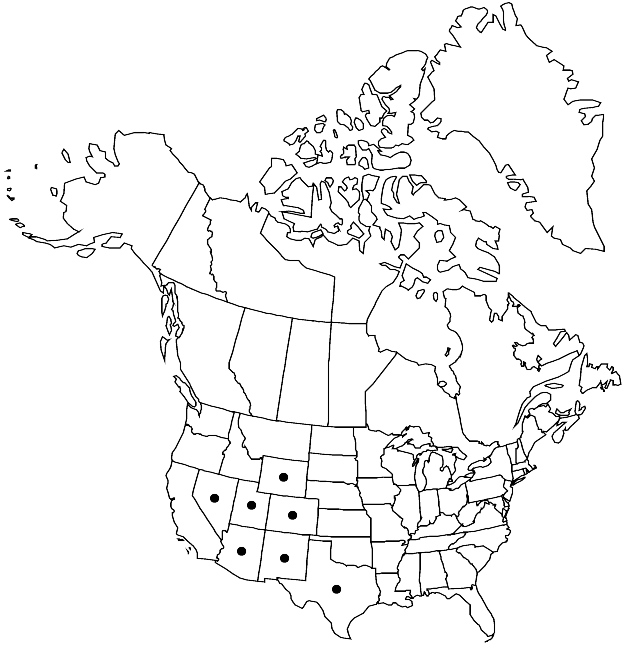Lepidium alyssoides
Mem. Amer. Acad. Arts, n. s. 4: 10. 1849.
Perennials or subshrubs; (woody base often aboveground); glabrous or minutely puberulent. Stems few to several from base, erect to ascending, branched throughout, (0.7–)1–4.8(–6.1) dm. Basal leaves often not rosulate; petiole 1–6 cm; blade pinnately lobed, (1–)1.5–8(–11) cm × (5–)10–35 mm, margins (of lobes) entire or denticulate. Cauline leaves sessile; blade linear, (0.8–)1.3–7(–9.5) cm × (0.7–)1–2(–3) mm, base attenuate, not auriculate, margins entire. Racemes elongated in fruit; rachis puberulent or glabrous. Fruiting pedicels divaricate to horizontal, straight or recurved to somewhat sigmoid, (terete), 3.5–8(–11) × 0.2 mm, glabrous or puberulent adaxially. Flowers: sepals ovate to oblong, 1–2 × 0.8–1 mm; petals white, suborbicular, 2–3 × 1–2 mm, claw 0.5–1.5 mm; stamens 6; filaments 1.5–2 mm, (glabrous); anthers 0.2–0.4 mm. Fruits broadly ovate, 2–3.7(–4.3) × (1.5–)1.8–2.9(–3.4) mm, apically winged, apical notch 0.1–0.3(–0.4) mm deep; valves thin, smooth, not veined, glabrous; style 0.2–0.6 mm, exserted beyond apical notch. Seeds ovate, 1.5–1.8(–2) × 0.9–1.2(–1.5) mm. 2n = 32.
Phenology: Flowering May–Jul.
Habitat: Pinyon-juniper or sagebrush communities, prairies, grasslands, sandstone outcrops, gypsum flats, sand dunes, dry flats and river bottoms, gravelly roadsides
Elevation: 1200-2800 m
Distribution

Ariz., Colo., Nev., N.Mex., Tex., Utah, Wyo., Mexico (Chihuahua, Coahuila, Nuevo León, San Luis Potosí).
Discussion
Of the five varieties of Lepidium alyssoides recognized by R. C. Rollins (1993), one (var. mexicanum Rollins) is a short-tufted form of the species restricted to Mexico that does not seem to merit recognition, another (var. junceum) is a glabrescent form of the type variety, a third (var. eastwoodiae) is treated below as a distinct species, and the fourth (var. angustifolium) is included here within L. alyssoides.
Selected References
None.
